-
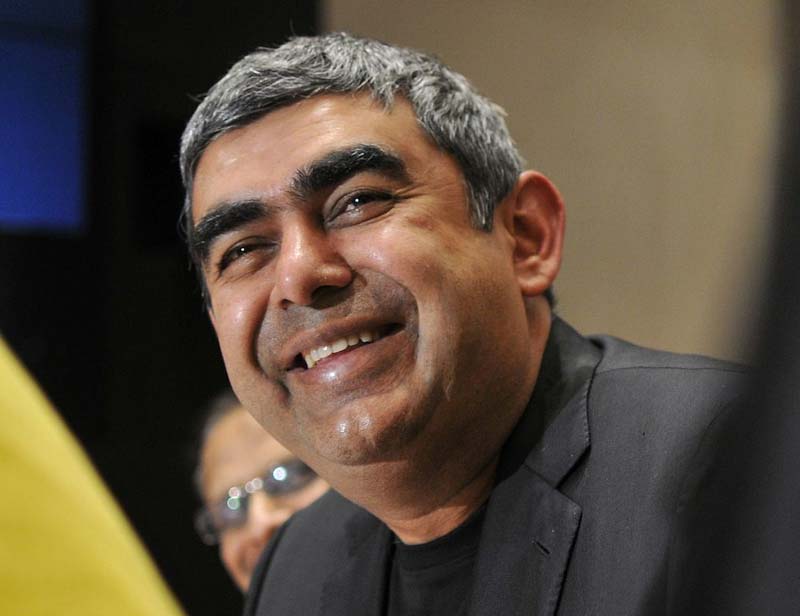
Infosys Q2 results 2015: India’s second largest IT services exporter reported a 9.8% rise in net profit for the second quarter ending September 30, 2015. Infosys posted a net profit of Rs 3,398 crore as compared to Rs 3,096 crore in the corresponding period a year ago. Here are the top 10 key takeaways from the second-quarter results:
-
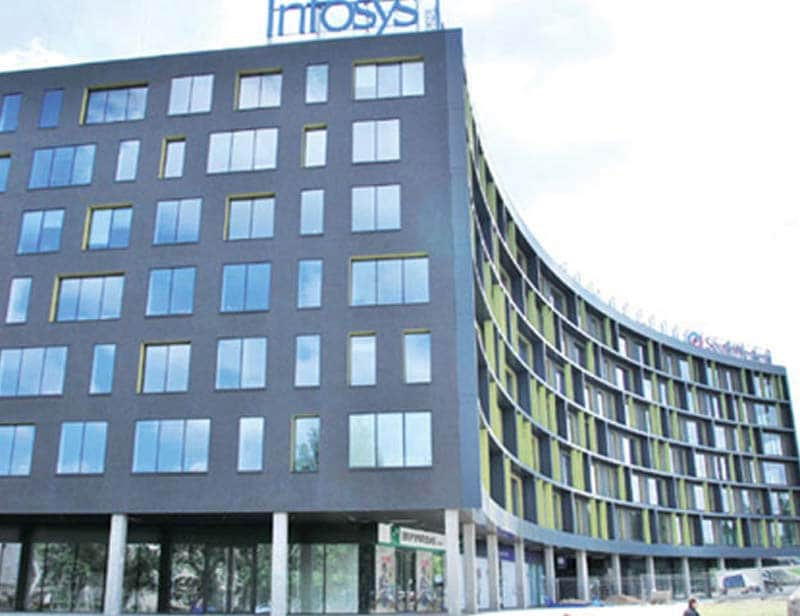
Infosys Q2 results 2015 – Net Profit: Infosys has reported 87.40 per cent rise in its standalone net profit at Rs 6,306 crore for the quarter ended September 30, 2015 as compared to Rs 3,365 crore for the same quarter in the previous year. The company has reported 9.75 per cent rise in its net profit at Rs 3,398 crore for the quarter ended September 30, 2015 as compared to Rs 3,096 crore for the same quarter in the previous year.
-
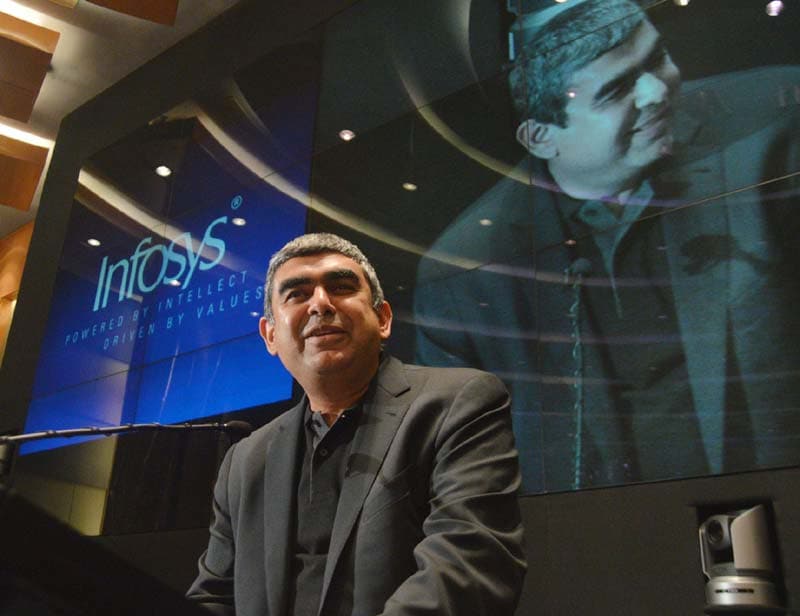
Infosys Q2 results 2015 – Total Income: Infosys standalone total income has increased by 12.63 per cent to Rs 14,299 crore for the quarter under review from Rs 12,696 crore for the corresponding quarter of the previous year. On a consolidated basis, the company posted net profit of Rs 16,428 crore, up 15.53 per cent, against Rs 14,219 crore in the same quarter last year.
-
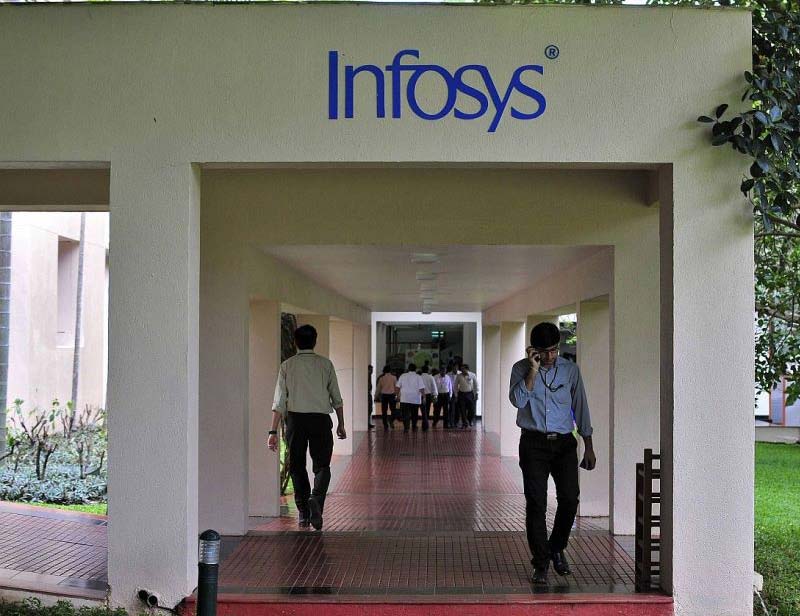
Infosys Q2 results 2015 – Dividend: Infosys has informed that the Board of Directors of the Company at its meeting held on October 12, 2015, has declared an interim dividend of Rs 10 per equity share. The company said that the payment of dividend will be made on October 21, 2015.
-
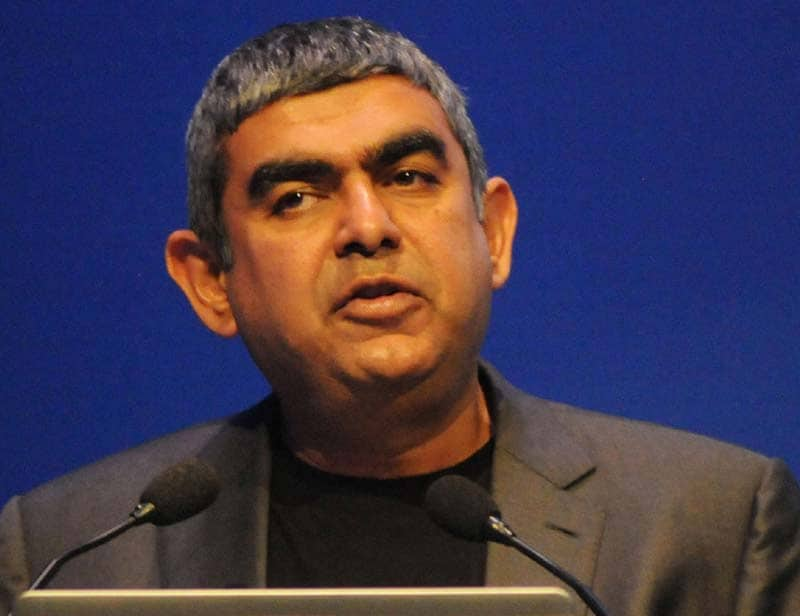
Infosys Q2 results 2015 – Clients addition: Infosys added 82 clients during the quarter and its total number of clients are more than 1,000 now.
-

Infosys Q2 results 2015 – Changes in Management: Infosys has said that the Board of Directors of the company at its meeting held on Monday effected some key management changes. On top amongst them is that Rajiv Bansal has stepped down as chief financial officer (CFO) effective October 12, 2015 (end of business hours). Infosys clarified that he will be with the company till December 31, 2015. Ranganath MD has been appointed as chief financial officer (CFO designate) effective October 12, 2015 (end of business hours). “Our relentless focus on operational efficiencies has resulted in increase in operating margins despite higher variable payouts”, said Rajiv Bansal, CFO, Infosys in a release. “The impact of significant currency volatility was effectively mitigated by our proactive hedging program.”
-
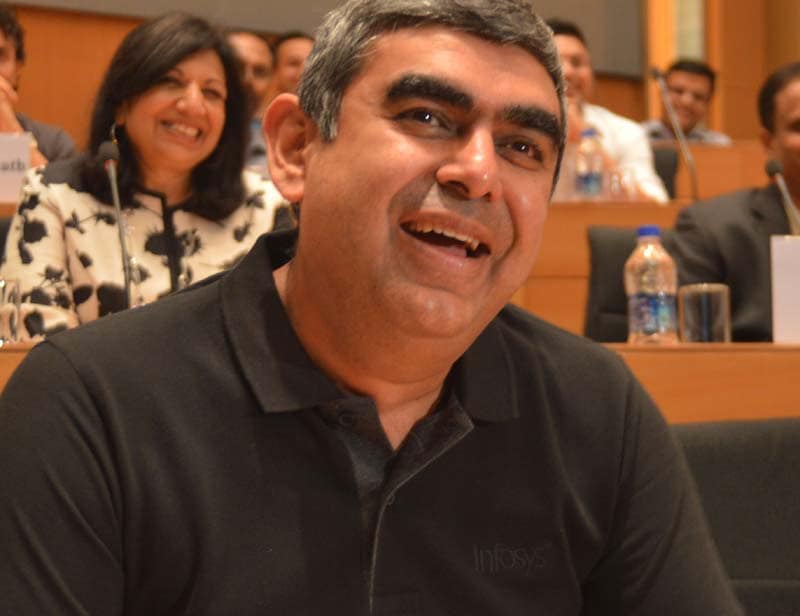
Infosys Q2 results 2015 – 2015 Incentive Compensation Plan: The Board approved the 2015 Incentive Compensation Plan, amending the existing 2011 RSU Plan. The 2011 RSU plan has been amended in accordance with the Sebi (share based employee benefits) regulations, 2014 and will be issued as the 2015 Incentive Compensation Plan. The grants made under the 2011 RSU plan will continue to be administered and implemented by the 2015 Incentive Compensation Plan. The 2015 Incentive Compensation Plan will be subject to the approval of shareholders, and the Board further approved the issuance of new shares, so as not to cumulatively exceed 2% of the shares outstanding, in order to support grants made over time under the 2015 Incentive Compensation Plan. Approval to issue such shares under the 2015 Incentive Compensation plan will be subject to the approval of shareholders.
-
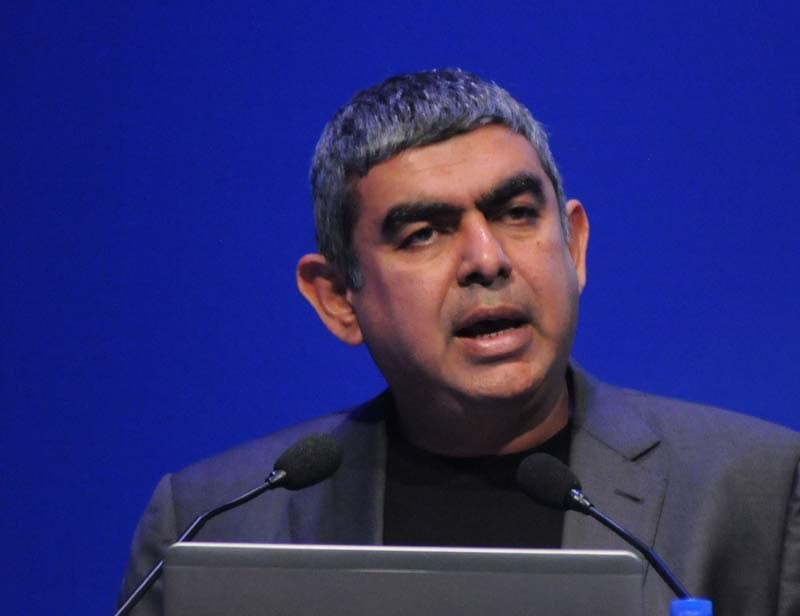
Infosys Q2 results 2015 – Guidance: Infosys has lowered its FY16 revenue guidance from 7.2-9.2 per cent to 6.4-8.4 per cent in dollar terms.
-
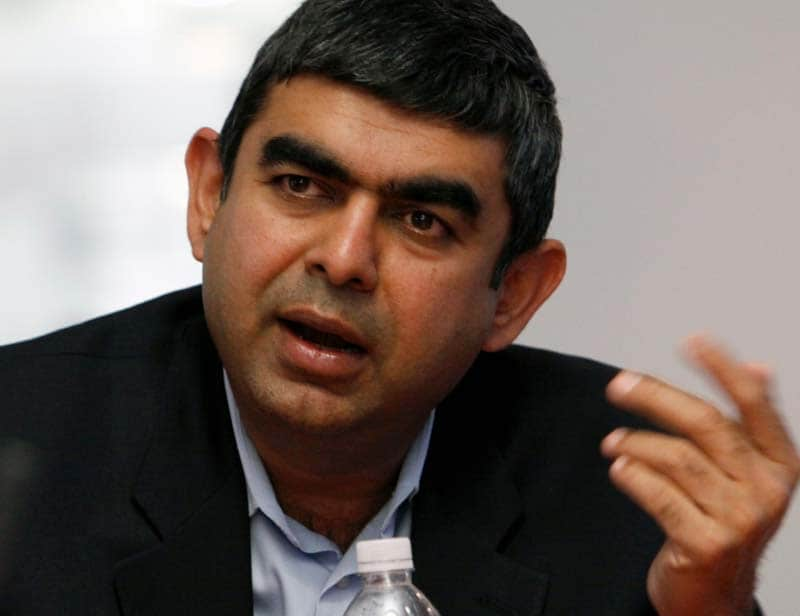
Infosys Q2 results 2015 – Attrition: Attrition rate of Infosys increased to 19.9 per cent from 19.2 per cent on quarter on quarter basis.
-
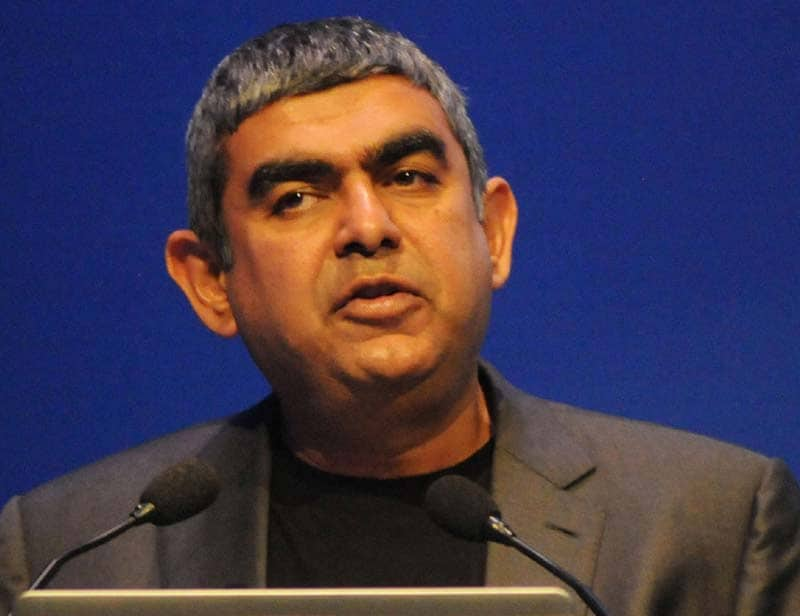
Infosys Q2 results 2015 – Client Wins: The company signed a three-year agreement with TOMS Shoes to become its worldwide partner to maintain and develop its digital platform. The agreement will enable TOMS to streamline the management of its web-based properties and introduce automation technologies to lower overall support and development costs.
-
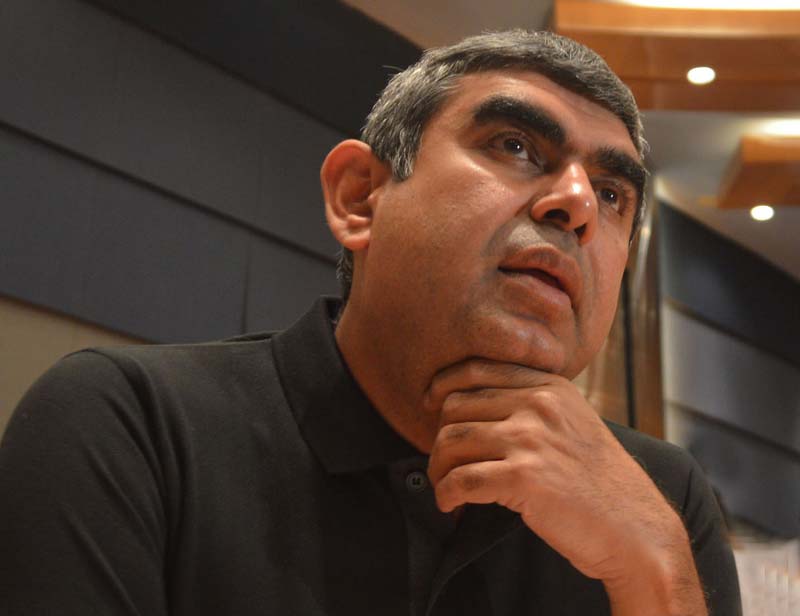
Enhanced Service Offerings: During the quarter, on August 20, the company announced the launch of Aikido, comprising three enhanced service offerings in Knowledge-Based IT (KBIT), Platforms, and Design Thinking. Ki or Knowledge-Based IT – which is all about the renewal of existing landscapes, capturing the knowledge and know-how in an organisation and bringing new technologies and tools – AI, APIs, cloud, automation – into the company's traditional engagements in application maintenance, testing and BPO together.

Who is Alexandr Wang? The 28-year-old hired by Mark Zuckerberg for $14 billion to head Meta’s Superintelligence Labs






